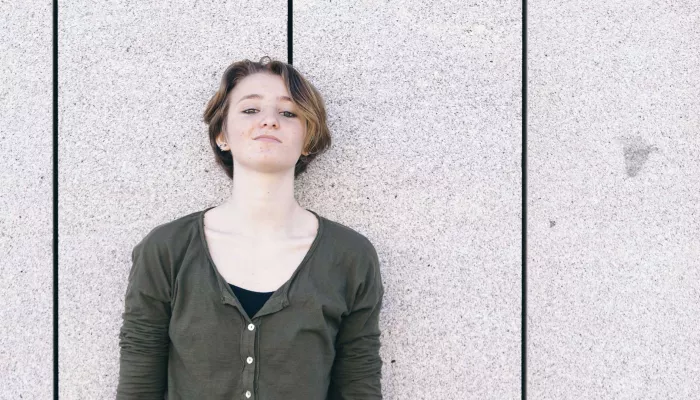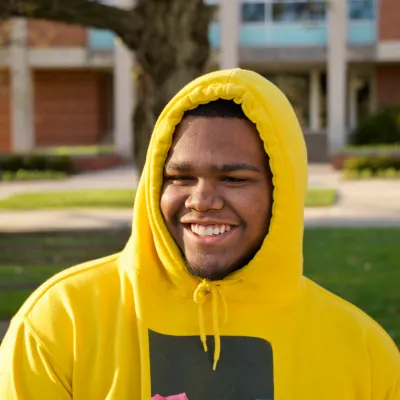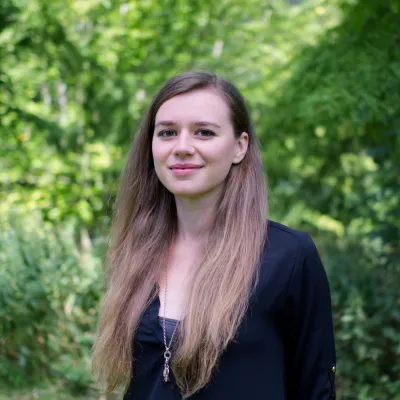Leni* was living in foster care with their foster parents until they turned 18. Because their mental health was unstable, they weren't ready to live completely independently and so they were referred to Centrepoint to build the independent living skills and mental resilience necessary for a successful move on.
Struggles with mental health
I've been suffering with my mental health since I was about 12 years old. I have anxiety, depression, and PTSD. When I hit my teens, my mental health just got worse. Now that I have dedicated mental health support from Centrepoint, I am learning to manage it.
Seeing a psychotherapist has been really helpful. I've learnt how to open up about things that I never thought I’d be able to open up about. They’ve made me feel comfortable enough to do that. My psychotherapist works with me in a way that suits me and I never feel judged.
Identifying as non-binary
I identify as non-binary and my pronouns are they. For a long time I knew something didn’t feel quite right. Every time someone used to say ‘she’ it felt wrong. I thought maybe I was a boy, but I didn’t feel quite comfortable with that either. As I got a bit older, I started realising that non-binary was real. It made sense of how I was feeling and it was a relief.
When I finally came out about my identity and sexuality to my friends, family, and people who support me, it was a relief and it felt good.
Keeping those things inside affected my mental health because I hadn't told anyone. Everyone was still referring to me as 'she' and they didn’t have any idea about the impact it had. It was how people saw me, but not how I saw myself.
In the end, what gave me the strength to come out was that a lot of my friends were either gay or transgender. I kept thinking they're not going to judge me. They didn’t judge me for coming out as pansexual so I realised that they probably wouldn’t judge me for being non-binary. I was right and it felt so good to be me.
Getting the support I needed
When I first moved into Centrepoint, I felt really anxious and alone. But my support worker Lee came outside with me when I went for a cigarette. He sat with me and we had a chat and I just felt more comfortable, like I wasn’t on my own. He introduced me to a girl who was in the flat next to me and I was able to make friends with her. When it was time to move into my own place, he helped me move all my stuff and get the stuff I needed. It was just nice to know I didn’t have to do it on my own.
My other support worker, Chantelle, was always there when I needed to talk to someone. I used to struggle just keeping things clean and organised and Chantelle would always be there to support me and give me a little push when I needed it. Even if I just needed a chat. It felt kind of like being at home – like I was in a place with staff, but I could laugh with them and rely on them. Since being in my own place and getting floating support, Lisa has been my floating support worker and helped me so much with getting by on benefits and managing my finances.
Keeping on top of things
I started making daily planners and stuff that are just hanging on my fridge where I can see them. It has really helped me and just knowing that I have my own place, I want to be proud of it. So I keep on top of things because I am proud of it.
It feels amazing that I've actually achieved getting my own place. Because for me, I always thought I wouldn't make it to 20 and the fact that I have my own place, it's a big achievement.
Occasionally, I still have suicidal thoughts, but they are so much better since the help I’ve had from my psychotherapist. I used to be really bad. I was really suicidal. I’m making good progress, but I’m still working through a lot of stuff.
*Names have been changed




